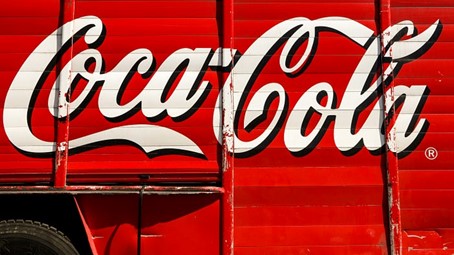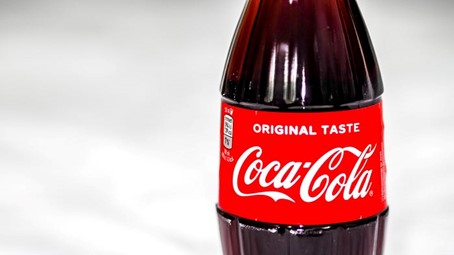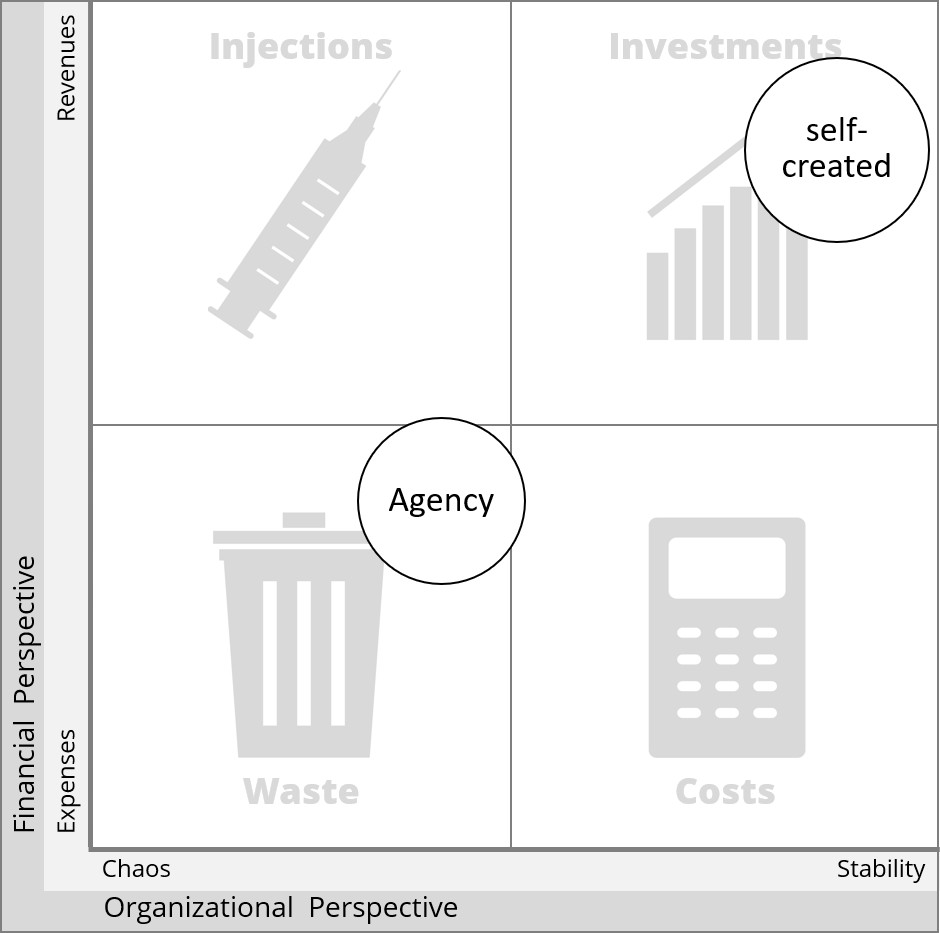
Photo by Maximilian Bruck on Unsplash
As soon as you start a business, numerous companies and freelancers will flock to you, unfortunately not as customers. They themselves want to sell you something. Some expenses may be unavoidable, some a good deal, and many a waste of money.
Investment, cost, waste, or injection
I've started six businesses, and each time I've learned a little more about how to spend money wisely. Running out of money is probably the most lethal danger for startups.
To classify my expenses, it helps me to look at which of these four categories they fall into.
1. Waste: Some expenses cause nothing but loss. For a startup, these are not only fraudulent offers, such as registration in irrelevant directories, but also goods or services that could be useful for another company in another business phase, but not for this start-up at the moment.
2. Costs: They are unavoidable, unless you want to find yourself in trouble. Official fees are an example.
3. Injections: These one-time investments are tricky because they have no long-term effect. Sometimes they masquerade as an investment and show their true colors later. Some sales promotions are typical examples. They can be helpful, but should not be overstated.
4. Investments: They pave the way to a prosperous future, but also require a significant cut in a startup's budget. This is the type of expenditure I always weigh carefully, as I know many vendors try to argue that a deal would be a valuable investment, when in my case it would just be a cash injection or even waste.
This approach can help startups be effective while creating a long runway. Smart expense management creates winners.
Creating a brand name
Building a brand is undoubtedly one of the most effective ways to create a thriving and lasting business. The logo is the central visual element of a brand.
Wouldn't it be a good investment in the future of the company to accept the offer of one of the many brand agencies? Certainly not, if you can achieve the same effect for free.
Let's start with the brand name. In many cases it is identical to the name of the company. To create it, some creativity is required, but not much. Brainstorming can be enough, and the results should be reviewed:
- Is the name simple and clear?
- Does it show some relevance to the product or service?
- Is it unique, i.e., not taken by someone else or equal to another brand?
- Is it available as a registered trademark and domain name?
- Is it safe from misunderstanding (even in different languages)?
When three or four viable names pass the filter, they should additionally be tested by introducing them to people and receiving feedback.
Creating a Logo
Creating a logo can be a long creative process with many iterations. That's why agencies charge a considerable amount of money for it. But a logo can also be created in a different way. Like a brand name, a logo should be simple, relevant, and available. It is an advantage if it symbolizes something related to the business, but the brand name or initials in an appropriate font can also suffice. Remember: A logo can be changed after some time. There is no need to find a perfect solution until the startup has reached break-even.
How can you create it yourself? Maybe you have a talented friend who can draw some designs. If not, don't worry. There are several online services on the market that create logos AI-driven for a few bucks.

Photo by Laura Chouette on Unsplash
How Coca-Cola created a brand name and logo at zero costs
Coca-Cola is one of the most valuable brands worldwide. Everyone knows it. How did they achieve to create an iconic brand name and logo? Quite simply, and at zero cost. Frank M. Robinson was the bookkeeper and partner of John Stith Pemberton, the inventor of Coca-Cola. In 1886, he invented the name by simply combining two key ingredients of the drink at the time: coca leaves and cola nuts. He also chose the red color and the curved lettering.
The story began. The logo was updated from time to time, but never replaced. A simple, product-related name plus a recognizable color and a beautiful font can make a success story. Coca-Cola is not the only company that has relied on this streamlined approach to branding. Google, Uber, FedEx, Sony, Toshiba, Kellogg's, NASA, Canon, and others have logos that represent the name in a text-based form.
It's not about the brand name and logo design itself, but what you make of it. A simple brand design can become famous through clever marketing, and a sophisticated brand design can be a total flop if the company fails to build a stable business on top of it.
The brand as an investment
It's true, a strong brand opens doors and makes a company recognizable. It can be a good investment in the future. But it doesn't have to be expensive. A startup won't miss a beat if it begins with a name and logo it creates itself. Conversely, hiring a branding agency can easily lead to a waste of money.

Brand creation in early-stage startups according to the Spend Evaluation Matrix for Startups, © Uwe Weinreich, 2023, CC BY-SA 4.0
Further expenditure optimizations
Economy is a serious game and it involves lots of money. The goal of the game is to create a great company, not to spend as much as possible. Smart decisions about expenditures will increase the value of the company. Entrepreneurs who are able to create tremendous value with limited resources will be the winners.
The Spend Evaluation Matrix can help to find the right decisions. Two main questions need to be answered:
- Is the spending necessary to create stability and avoid chaos?
- Will the spending contribute to revenue?
If the answer to both questions is no, it is probably not a good idea to spend money, especially if the startup has not yet reached profitability.


